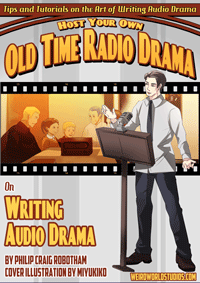Basic Grammar for Audio Writers Part 3 – Constructing Sentences
This week we turn our attention to the practical use of grammar and how understanding it can help improve our writing. Sentence Types Declarative – Makes a statement about something. Interrogatory – Asks a question. Imperative – Provides an instruction. Exclamatory – Makes an exclamation. The following exchange contains each of these. But in any […]

